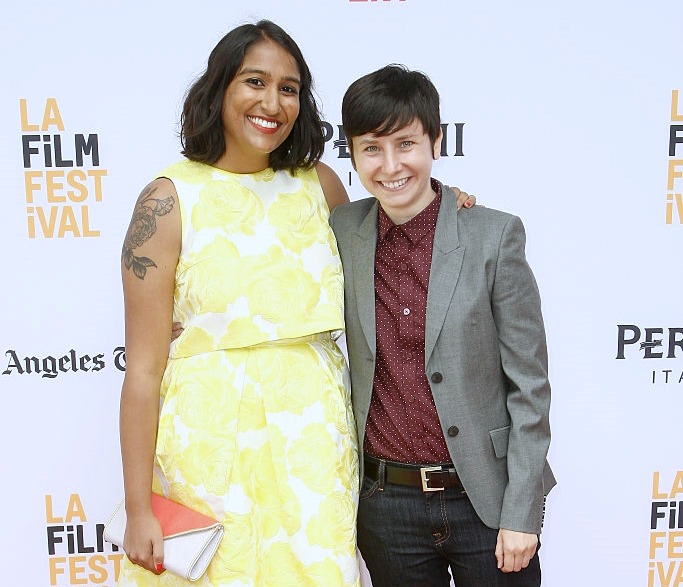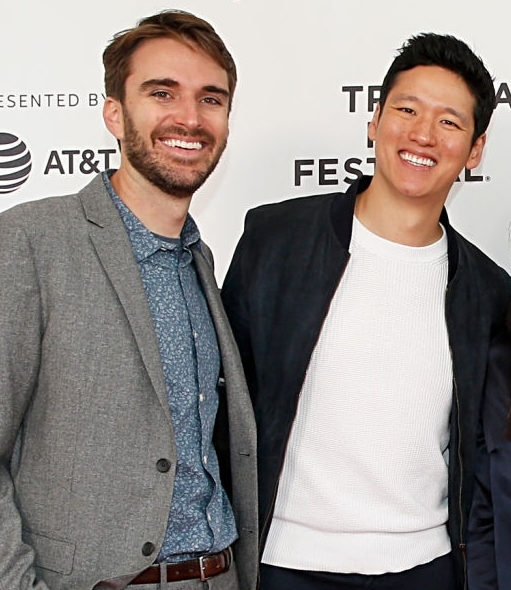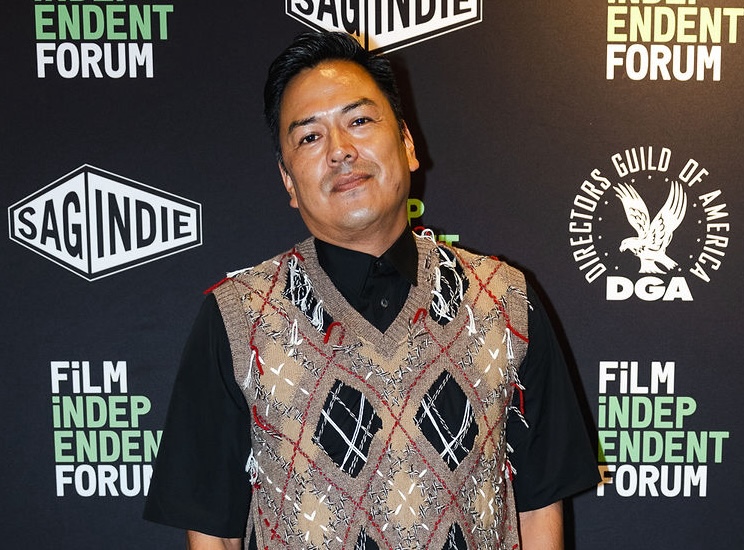If there’s one film sub-genre you don’t see much of, it’s Science Films. Not Sci-Fi, but films set in the world of science and technology. SENSITIVITY TRAINING sets out to change that, taking the buddy comedy genre and placing it in the science field. That’s part of the reason the film (and writer/director MELISSA FINELL) was awarded a production grant from the Alfred P. Sloan Foundation for increasing visibility of science and technology in media.
Produced by Finell and MEGHA KOHLI, Sensitivity Training is Finell’s feature debut, centering on an abrasive microbiologist named Serena (Anna Lise Phillips). When Serena’s negative attitude forces her into workplace sensitivity training with bubbly coach Caroline (Jill E. Alexander), an unlikely friendship eventually sparks between the mismatched duo.
The film premiered at the 2016 Los Angeles Film Festival. We had a chance to talk to Sensitivity Training‘s writer/director/producer Melissa Finell and producer Megha Kohli to get more info on how they made their first feature.
——
COLIN McCORMACK: Melissa, you went to UCLA Film School and you shot a bulk of the movie on-campus. Did you have a lot of classmates or fellow alumni work on the film also?
MELISSA FINELL: Yes, a lot of people. Most of my department heads [and] a lot of my crew were former classmates of mine from UCLA. My DP, production designer, costume designer, AD, the list goes on. I think one of the great things about film school is that you meet your collaborators and hopefully you come out of school with a core group of people that you really like working with.
CM: In what ways did the production feel different from a student film? You’re on-campus, you’re working with a lot of the same people, but at the same time it’s a whole other beast since it’s not only a feature, but other people have money invested and the stakes are a little higher.
MF: Yeah, I mean in terms of how it’s similar, I just kind of tried to approach it the way I approached my short films from a storytelling perspective, thinking about, What is this film really about? How do I want the audience to feel while they’re watching it? How am I communicating this story? And over the years I’ve kind of built how I like to work with actors, the way I like to collaborate with my department heads, and all of that I think I was able to build upon from the shorter films to this. And in terms of how it was different, I didn’t notice huge differences because I always approached my student films in a very professional way and try to see them as films rather than a project that I’m getting credit for. Most of the differences I felt were just having to do with transitioning from a short to a feature; longer-form storytelling and production-wise what’s involved with a feature.
CM: Megha, in what ways was it different from the producing side? It’s the first feature you’ve produced?
MEGHA KOHLI: It is, yeah. I just think the stamina that is needed is definitely greater. We were on a pretty tight timeline for a project of that scale in terms of the cast and the different locations and whatever. So yeah, we were definitely running ourselves ragged. [Both laugh] But it was great! There was a real camaraderie on set. We had a really tight crew. As Mel said, it was people who she’d known since film school and people who she’s worked on other projects with. And it was the first time that I’d sort of worked in that space, so it was really exciting for me. I mean, it felt like camp.
MF: Yeah, it really felt like family. We tried really hard whenever we were reaching out to potential crewmembers to keep our crew really consistent, even in the support positions. In terms of making sure people were there for the whole film, not just a week here or there. I was like, We need to make a TV show or something so we’d all get to work together every day. Because we really enjoyed it.
CM: How many days did you shoot?
MF: It was about 21 days of principal photography.
MK: And we were lucky also, I would say, because the majority of our funding came from grants. So we were a little [more] independent in that way. We kind of were really making our own calls about stuff. It was great as a producer – and I know for Mel as a director – not really having to feel like we had a lot of oversight. It was like: This is what we’re doing. I think it was a conscious choice to make this movie that way. It was not necessarily the biggest budget, but it was definitely enough for us to get it done and it gave us the freedom also to be able to do it the way we wanted to.
CM: Did you have a budget in mind when you started applying for grants, or did the grants you got dictate what the budget had to be?
MF: It was sort of a combination.
MK: Yeah. I think it’s kind of a chicken and egg sort of thing. They happened at the same time.
MF: They informed each other.
MK: I think we always knew we wanted to do it small, and we knew that was going to enable us to make the movie in the timeline we wanted. We didn’t have to go through so many rounds of taking it out, trying to get investors. We knew that would take a lot of time, so this really just allowed us to go out and make our movie.
MF: Yeah, for me it was just really important– especially as a director, just getting that first feature under your belt is a huge hurdle for a lot of people. I could have done this more in a traditional way, and I didn’t want to end up having to take five years to try to get this developed and financed, and I feel with that first feature you just need to get it under your belt, get it out of the way, and I just wanted to know I was going to make it for whatever I could make it for. And I tried to write something that we could do with a reasonable budget and that it wouldn’t look like we stretched the budget really thin.
MK: Yeah, no explosions in this one. [Laughs]
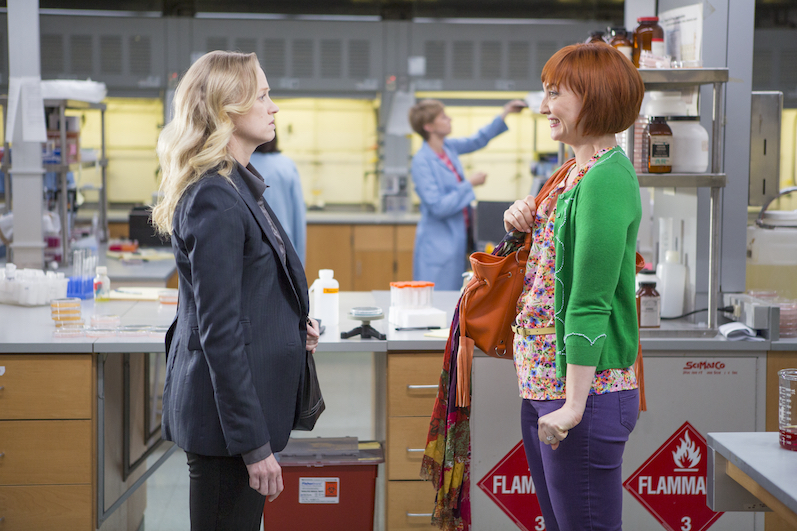
CM: Beyond the grants, for the remaining budget did you raise the money in a traditional way? Were you making calls and asking people to invest [with] a business plan?
MF: There’s some private equity investors, yeah.
CM: Was that something new that you guys had to do, asking people to invest their money?
MF: Yeah. I really didn’t want to do a Kickstarter, I’ve done that for earlier projects and I just really wanted this to not go down that route.
MK: It was a little cleaner for us to know that we had the bulk of it from grants and get the rest of it [privately]. And the Kickstarter thing would have again added a lot of time to our pre-production and development process. With this, we were able to get it together a little bit more quickly.
CM: What is one of the most important factors you’ve realized by working together [needed for] a director and producer’s working partnership?
MK: That’s a great question. We are actually in a relationship also. So we had been dating I guess for a few years before we did this [film]. And I always joke that making the movie was sort of like getting married and having a baby all at the same time.
MF: [Laughs] All at once.
MK: It’s like you put on this crazy party and you’re really worried if there are enough chairs, and you have to feed all these people–
MF: And then there’s a product that’s the result of it all that has to turn out okay–
MK: Yeah and then we have this baby and it’s very high-maintenance.
CM: Yeah, there was this I think Jay Duplass quote, [note: he was quoting his brother Mark] he said between being a filmmaker and an actor, being an actor is like you’re a drunk uncle who shows up for dinner; being a filmmaker is you’re the parent who not only has to create the baby but then raise it.
MK: I totally agree with that.
MF: That’s funny.
MK: For us it was a lot of fun, though. We had a lot of fun putting it together. And especially being in production– it wasn’t guerilla exactly, we definitely dotted our i’s and crossed our t’s and everything, but it sort of had that run-and-gun feel of a small operation. For Mel and I working together, we worked on the script a little bit together during the development process, so I knew that she knew what she wanted. We had talked about it, so for me it was just getting her that. Making sure she had what she needed to make the film that she wanted to make. That’s how I approached it as a producer.
MF: For me I think one of the most important things in working with a producer is Megha has a really good sense of story. So I always knew she understood exactly what each scene needed and what it was about, and all the underlying reasons why things needed to be a certain way. Sometimes people – especially on an indie project – they think, Who can make this shoot happen? And that’s obviously one of the most important parts of it. But [more ideally] it’s like, Who can make this shoot happen in a way that’s conducive to the best story elements possible? And her feedback was always really useful, and a lot of logistical choices she made happen were helped by the fact that she always understood what would benefit the story and the outcome that would actually make it to the movie and communicate something to the audience. That was really important to me.
MK: What I really learned from working with Melissa is when you put in that much effort and you have all these people and you’re doing this thing, you gotta get what you need before you leave. And really knowing when you’re on a low-budget shoot, you’re going to have to make compromises, there are corners that will have to be cut at some point. But knowing which corners to cut, which ones are not going to hurt the story, is a really important thing. So knowing when to push for what you need and how to make a choice that will make your production possible but not compromising [too much].
MF: Not sacrificing something for the audience.
MK: It’s a really tight balancing act, but I think it’s something we pulled off.
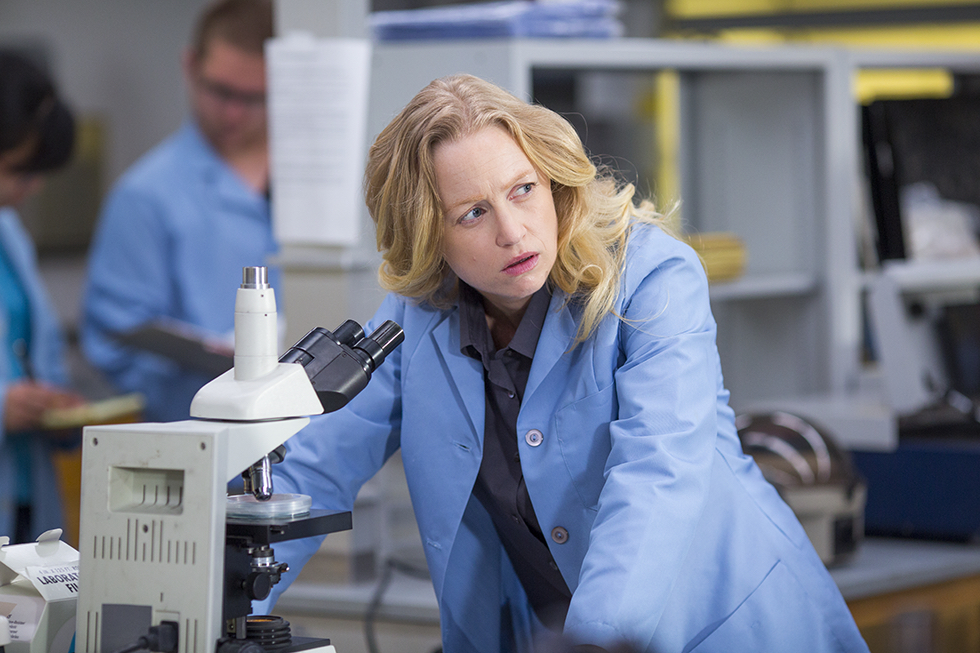
CM: When it comes to the story, was the setting always in a microbiology lab or did finding out about the Sloan grant contribute to that [choice]?
MF: Yeah, that was sort of interesting how that happened. I remember a little bit before I learned more about the Sloan Foundation, I just had this basic idea that didn’t include microbiology. It was just about this very misanthropic woman who has all these interpersonal problems with people at work and then gets forced into this sensitivity training. So I knew it would be this character-driven comedy that dealt with the workplace environment, but I hadn’t yet thought about it enough to know “what’s her workplace?” And then I went to a presentation that the Sloan Foundation gave about some of their different grants that they offer and it kind of clicked for me. I hadn’t thought of it this way, but it actually made so much sense for Serena the main character to be a scientist. Because a lot of her personal issues – she has a very precise way of thinking, she’s the kind of person who corrects everyone’s grammar, and isn’t very good with people – and it actually made sense for her be a scientist. And then I did some research while I was coming up with a proposal for the grant and I thought microbiology made sense. There’s a lot of immunology and a lot of virology and bacteriology, [they’re] all part of microbiology and a lot of that has to do with protecting oneself or protecting an environment from a certain intruder. And she’s this very impermeable character herself, so I tried to make her research mirror what she was going through personally.
CM: Did you have to do the bulk of the research when you were writing [the screenplay] or does Sloan assist with that, in terms of getting the facts and the science right?
MF: Sloan did assist. The way this particular grant worked is they selected a few finalists– I [had done] a treatment proposal. And then I became a finalist, and part of being a finalist is that they assigned me a mentor who was a scientist and worked with the Sloan Foundation. And she kind of guided me through my research as I was doing my first draft, and then from those drafts at the end of several months they selected my idea for the grant. But luckily I was able to work with a scientist during the writing of it, and I also worked with a scientist as we got into production. There’s this wonderful microbiologist that invited us into all these different labs at UCLA, and I brought my actors with me, I brought my art department with me. We could observe all these labs. The actors were looking at how all these people were interacting, what were they physically doing, what are they pipetting. And then art department of course was thinking, How are we going to create our own lab? And they actually worked really closely with a couple different scientists in the creation of the lab that we built.
CM: What other programs or nonprofits or books did you guys find useful as filmmakers, either when making student films or particularly with the feature?
MF: Film Independent has also been really helpful to me in a lot of ways. I was a part of their Project Involve directing fellowship the year after I shot this film. So they’ve definitely had a big impact on me. I moved out to LA to attend the UCLA M.F.A. program, so that’s [also] been a huge community for me. And then I would say film festivals have been a huge resource. Luckily I’ve had a few shorts on the festival circuits, so a lot of the filmmakers I’ve met there, other people in that world that I’ve met–
MK: Quinn.
MF: Yeah, one of my actors Quinn Marcus who plays Ellen in the film, one of the lab assistants, I met her when we both had shorts at OutFest the summer before we shot the film. And I realized, Oh my God she’d be perfect for this character. She had written a short and was starring in it and had this really great, funny personality. So I’ve kind of built up my collaborators and my resources through these different organizations.
CM: What was the film festival experience like? Did you come at it with a strategy or just pick top choices or do blanket submissions?
MK: LA Film Festival was definitely a target for us. Our film takes place in LA, we knew we were going to shoot it here and we tried to make it part of the story as much as possible, rather than have it be sort of incidental. So for that reason – shooting in it on the UCLA campus – [LAFF] just felt like a good fit. Also being a female-driven comedy directed and written by a woman, I know that Film Independent has made it really a point to support female and minority filmmakers, so for us definitely– [their] mission also spoke to our film. We were really excited to get in. It was a great festival, an amazing experience, the programmers were so excited, the audience that came out [gave] a great response to the film. So we were really lucky about that.
MF: I feel like we couldn’t have asked for a better place to world premiere in terms of the fit for our film. And just in general we loved everyone we met and we loved how the film was received. But in terms of how we were strategizing festivals, we always look at what are the kinds of things the festival has been screening for the last few years [and] how do we kind of fit in there. Something we loved about LA Film Festival and other festivals that we plan to screen at is it’s very audience-friendly. Obviously there’s also an industry component which is helpful to all of us and the film, but they program some more comedies than maybe the average film festival. There are a lot of very dark films that play at film festivals– [Both laugh] We think of ourselves as a very audience-friendly film; it’s a feel-good movie, it’s something you can see with your friends or on a date. There’s a lot of people you can relate to in the film, and that was definitely something we were thinking about. Because that’s not something that every festival is looking for, or if they are they might want just one like that.
CM: What’s next? Are you looking at distribution models or focusing on festivals for the time being?
MF: We’re approaching both simultaneously. We’re definitely focused on the festival circuit but simultaneously from that, thinking about hybrid distribution in terms of digital and theatrical and how can we maximize who sees the film and make sure we get it to the audience that will appreciate it the most.
MK: Absolutely. As Mel was saying, we think of it as an audience-friendly film. I think the festival circuit is a great way to get your film out to people who wouldn’t ordinarily see it, and I think right now is also a really exciting time for distribution of independent films. So [we’re] taking a parallel path with both of those.
CM: Are you meeting those types of people [mostly] at film festivals? Buyers, aggregators, distributors.
MF: Yeah. It’s a combination of at festivals and just in other meetings and things like that.
MK: And I feel like there are a lot of people who just keep track of [the industry], What are the films premiering at this festival? Who are the filmmakers? Who are behind them? [We’re also] getting traction that way.
CM: What else is next in your careers or education?
MF: I have another feature I’m working on right now that I’m excited to finish writing and get out and shoot. And then some other writing projects.
MK: I am in my final year at USC. I actually started the USC Producing Program after producing Sensitivity Training. So it was a little bit of weird timing. It might have been helpful to do that [program] before. [Laughs]
CM: But you could come in with that in your back pocket. Anytime you’re questioned [at school] you could be like, Boom, I produced a feature.
MK: [Laughs] Yeah, it has been helpful. But I’m going to be graduating in May, and I really love working with writers and directors. I hope to work with Melissa on some of her projects in the future.
MF: I guess.
MK: [Laughs] I mean, she’s okay I guess. So yeah, I have a project of my own that I’m working on. I’m not a writer so much myself, but hopefully we’ll be seeing how that goes. That’s definitely a long-term thing though.
MF: And to clarify, she’s finishing her M.F.A. Not undergrad.
MK: Yeah, the Peter Stark Producing Program.
CM: The project you’re working on, is that to direct as well or are you are focusing on strictly producing?
MK: This one I’m writing, at least for right now. Hopefully we’ll be able to pass it off to a real writer eventually [laughs]. I don’t really see directing as my path. I like producing. I like being the person that helps make it happen.
CM: So you’re playing at Woodstock and Seattle Gay & Lesbian Film Festival. Do you have any other festivals you’re able to announce yet?
MF: Not that we can announce yet, but there will definitely be others popping up at the top of the year.
MK: Winter and spring.
MF: We’ll keep you updated!
__
Thanks to Melissa and Megha for talking with us about SENSITIVITY TRAINING. Learn more at sensitivitytrainingmovie.com, or follow the film on Facebook.
If you’re an independent filmmaker or know of an independent film-related topic we should write about, email blogadmin@sagindie.org for consideration.

